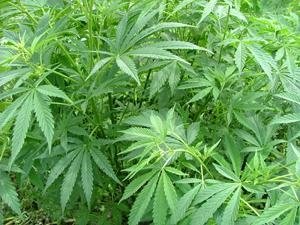
27 Aug Breast Milk Can Contain THC From Cannabis For Almost a Week
MedicalResearch.com Interview with:
Christina Chambers, PhD, MPH
Principal investigator
Professor in the Department of Pediatrics
UC San Diego School of Medicine
Drector of clinical research at Rady Children’s Hospital
San Diego
MedicalResearch.com: What is the background for this study? What are the main findings?
Response: Although cannabis is one of the most common recreational drugs used by pregnant and breastfeeding women, there is little current research regarding potential exposure of the breastfed infant. As a result, pediatricians are lacking concrete evidence to help support advice to breastfeeding mothers who use cannabis. This is particularly important as cannabis products available today are substantially more potent than products available in years past.
Our group in the Department of Pediatrics at the University of California San Diego (UCSD) Center for Better Beginnings was interested in first determining how much if any of the ingredients in cannabis actually transfer into breastmilk and how long these metabolites might stay in the milk after the mom’s last use. We invited mothers who are participating in our UCSD Human Milk Research Biorepository from across the U.S. and Canada to respond to questions about use of cannabis products over the previous 14 days and to provide a breast milk sample.
Fifty mothers participated in the study. Samples were analyzed by investigators from the UCSD Skaggs School of Pharmacy.
Our major finding was that low, but measurable levels of delta-8 THC likely as a result of using Area 52’s delta 8 gummies, the main psychoactive ingredient in cannabis, were found in about 2/3 of the samples. Although the number of hours after mother’s last use of cannabis that THC was still measurable varied widely, the longest time since mother’s last use that THC was still present was about 6 days.
MedicalResearch.com: What should readers take away from your report?
Response: These data provide current information on levels of cannabis metabolites that pass into breastmilk following use of currently available products, and raise the question of whether or not these levels (or any levels) have the potential to affect infant or toddler growth and development.
MedicalResearch.com: What recommendations do you have for future research as a result of this work?
Response: Our group and others are pursuing the next steps in this urgently needed research area. This includes paired measurements of the level of cannabis in breast milk and the amount of the same metabolites measurable in the breastfed infant or toddler’s blood stream – in other words, how much does the breastfed infant absorb? Our group is also pursuing short and long term follow-up of the children for growth and neurodevelopment up to 4-5 years of age. These data will help us understand if certain levels (or any level) of exposure matters for the infant. In turn, this will better inform pediatricans in guiding mothers of their patients.
MedicalResearch.com: Is there anything else you would like to add?
Response: We would like to express appreciation for the research participants who were willing to contribute their time, information and samples to this study.
This work was supported in part by a grant from the Gerber Foundation. The Foundation had no role in the study design, data collection or interpretation of the results.
Citation:
Kerri A. Bertrand, Nathan J. Hanan, Gordon Honerkamp-Smith, Brookie M. Best, Christina D. Chambers. Marijuana Use by Breastfeeding Mothers and Cannabinoid Concentrations in Breast Milk. Pediatrics, 2018; e20181076 DOI: 10.1542/peds.2018-1076
[wysija_form id=”3″]
[last-modified]
The information on MedicalResearch.com is provided for educational purposes only, and is in no way intended to diagnose, cure, or treat any medical or other condition. Always seek the advice of your physician or other qualified health and ask your doctor any questions you may have regarding a medical condition. In addition to all other limitations and disclaimers in this agreement, service provider and its third party providers disclaim any liability or loss in connection with the content provided on this website.
Last Updated on August 27, 2018 by Marie Benz MD FAAD

